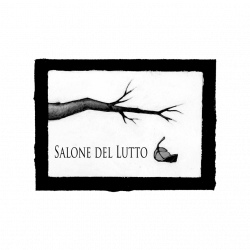He shouts every morning. Or nearly so. He shouts so loudly that I can hear him two rooms away. There is no answer to his screams. Only a deep and resigned silence. And yet my neighbour does have a family: he has a wife, a grown up son. But when he shouts nobody answers him. My neighbour has not only a family but also a vice, or rather the worst vice of all, in my opinion. My neighbour is blinded by wrath. Especially as soon as he wakes up, at 7.30 in the morning. If I believed in the beyond, with its nice Hell represented in Dante’s way, I would know for sure where to send my neighbour. In Dante’s building, I would save a comfortable studio apartment for him in the swampy river Styx. I would leave him there to burn forever: they have central heating. Even better, I would like to imagine him in a baroque Hell, one of those Hells where the damned are allowed an area which is much smaller than what was believed in the Fourteenth century, his body clumped on other hundreds of thousands of bodies, all wrapped up by the same fire, a fire that sums up every possible gradation, the countless shades and the various dosages of punishments: diabolically intelligent, selective, speculative, indescribably chameleon-like, it can do the incredible trick of simulating its contrary, ice, of making people feel its burning cold. Fire and overcrowding, and unbearable promiscuity, compulsory cohabitation in a Hell which looks like a lazaretto, a hospital for venereal diseases, an anthill, an intensive rearing of corpses, of pressed and filthy bodies that can’t breathe…
But I think that there is nothing afterwards, and that vices and virtues are punished or rewarded only on this earth. After all, every now and then, I also think that our buildings are a sort of Hell – more rarely a Heaven – where all vices are extensively represented. All I had to do to realize it was read High-Rise by James Ballard. In 1975 the author postulates an explosive situation: the tenants of 1000 flats in an ultra-modern high-rise building are blocked inside of it. Inexorably, the worst feelings arise: growing wreath, no sign of collaboration or solidarity. Ballard, and others, have put me on the right track. The beyond, in a sense, is already in our buildings – beyond my entrance door – and has countless horrors in store for us: condo meetings, complaints for the crumbs on the balconies below, small gates that make a noise as they are closed, loud music, laughs on the balcony in summer, curtains whose colour is different from the others, clicking of heels up the stairs, dinner guests exceeding the number of one.
Here it is, our Hell imagined as the beyond. Or maybe we have imagined the beyond taking inspiration from our daily Hell. I don’t know. But my neighbour is shouting again.
Urla tutte le mattine. O quasi. Urla così forte che lo sento due camere più in là. E alle sue urla non c’è risposta. Solo muto e rassegnato silenzio. Eppure il mio vicino di casa una famiglia ce l’ha: ha una moglie, ha un figlio ormai grandicello. Ma quando urla nessuno gli risponde. Il mio vicino di casa, oltre che una famiglia ha un vizio, o meglio il vizio peggiore di tutti, per quanto mi riguarda. Il mio vicino di casa è accecato dall’ira. Soprattutto appena si sveglia, alle 7.30 del mattino.
Se credessi nell’aldilà, con il suo bell’Inferno rappresentato alla maniera di Dante, non avrei dubbi su dove spedire il mio vicino di casa. Nel condominio dantesco, gli riserverei un comodo monolocale nella palude dello Stige. Lo lascerei lì dentro ad ardere per l’eternità: il riscaldamento è centralizzato. Meglio ancora, mi piacerebbe pensarlo in un Inferno di tipo barocco, di quelli in cui i dannati hanno a disposizione una metratura molto ridotta rispetto a ciò che si pensava nel Trecento, il suo corpo ammassato su altre centinaia di migliaia di corpi, tutti avvolti dal medesimo fuoco, un fuoco che riassume in sé tutte le possibili gradazioni, le innumerevoli sfumature e i vari dosaggi delle pene: diabolicamente intelligente, selettivo, speculativo, indicibilmente trasformista, arriva al portento incredibile di simulare il suo opposto, il ghiaccio, di farne provare il gelo ardente e il freddo bruciante. Fuoco e sovraffollamento, e promiscuità intollerabile, coabitazioni forzate in un Inferno che è come un lazzaretto, come un ospedale per malattie veneree, un termitaio, un allevamento intensivo di cadaveri, di corpi pressati, lerci, che non hanno respiro…
Invece penso che dopo non ci sia nulla, e che vizi e virtù siano puniti o premiati solo su questa terra. E in fondo, ogni tanto, penso pure che i nostri condomini siano questo, una specie di Inferno – più raramente un Paradiso – in cui i vizi sono tutti ampiamente rappresentati. Mi è bastato leggere Condominio di James Ballard per rendermene conto. Nel 1975 l’autore ipotizza una situazione esplosiva: i residenti di 1000 appartamenti di un grattacielo iper-tecnologico bloccati al suo interno. E, inesorabilmente, l’emergere dei sentimenti peggiori: l’ira montante, nessun intento di collaborazione o di solidarietà. Lui, e altri ancora, mi hanno messo sulla strada giusta. L’aldilà, in un certo senso, è già nei palazzi – al di là della mia porta d’ingresso – e sa riservare innumerevoli orrori: le riunioni condominiali, le proteste per le briciole sui balconi sottostanti, per i cancelletti che si chiudono facendo rumore, per la musica a volume troppo alto, per le risate in terrazza d’estate, per le tende di un colore non uniforme alle altre, per il rumore dei tacchi su per le scale, per gli ospiti a cena in numero superiore a uno.
Eccolo qui, il nostro Inferno immaginato alla stregua di un aldilà. O forse è l’aldilà, che abbiamo immaginato partendo dal nostro inferno quotidiano? Non lo so. Ma intanto il vicino di casa sta urlando di nuovo.
